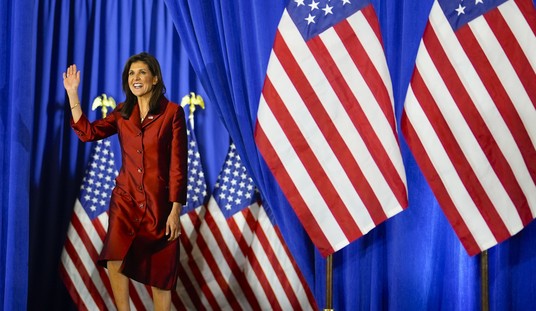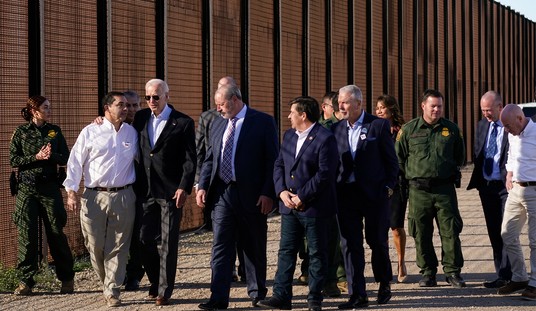Ah, I remember spending a solid month on this story back in spring 2009 when Obama and Cheney were having their war of words over enhanced interrogation. Porter Goss claimed that he and she were both briefed on waterboarding in September 2002 as members of the House intel committee, a hugely incendiary accusation given Pelosi’s status as Speaker and therefore an anti-torture liberal light. Pelosi contended that, in the NYT’s words, “the lawmakers were told only that the C.I.A. believed the methods were legal — not that they were going to be used.” Then, as the media turned up the heat on her, she accused the CIA of having misled her. (Why she waited to mention this until 2009, no one knows.) Then, when she started taking heat for smearing the CIA, she backed off and — ta da — blamed Bush instead. To this day, the questions of what she knew and when are still muddy.
According to Marc Thiessen, the new book from former CIA counterterror chief Jose Rodriguez purports to unmuddy it:
“We explained [at the September 4, 2002 briefing] that as a result of the techniques, Abu Zubaydah was compliant and providing good intelligence. We made crystal clear that authorized techniques, including waterboarding, had by then been used on Zubaydah.” Rodriguez writes that he told Pelosi everything, adding, “We held back nothing.”
How did she respond when presented with this information? Rodriguez writes that neither Pelosi nor anyone else in the briefing objected to the techniques being used. Indeed, he notes, when one member of his team described another technique that had been considered but not authorized or used, “Pelosi piped up immediately and said that in her view, use of that technique (which I will not describe) would have been ‘wrong.’ ” She raised no such concern about waterboarding, he writes. “Since she felt free to label one considered-and-rejected technique as wrong,” Rodriguez adds, “we went away with the clear impression that she harbored no such feelings about the ten tactics [including waterboarding] that we told her were in use.”
So we’re left with a “he said-she said” standoff? Not at all. Rodriguez writes that there’s contemporaneous evidence to back his account of the briefing. Six days after the meeting took place, Rodriguez reveals, “a cable went out from headquarters to the black site informing them that the briefing for the House leadership had taken place.” He explains that “[t]he cable to the field made clear that Goss and Pelosi had been briefed on the state of AZ’s interrogation, specifically including the use of the waterboard and other enhanced interrogation techniques.”
Time to declassify the cable, says Thiessen, especially after Pelosi swore up and down to the press three years ago that she didn’t know waterboarding was going on in 2002. Why it would be shocking that a Democrat would tolerate even the harshest of harsh interrogation less than a year after 9/11, with U.S. intelligence still unsure of what it was up against and desperate for leads on AQ bigwigs, I have no idea. Given O’s track record of replicating and even building on Bush’s counterterror policies, I have no doubt that he’d break his own policy on banning EIT if the CIA had a key suspect in a ticking-bomb plot in custody. In fact, precisely because Obama’s gone so far down the road of the Bushian approach, I wonder if Rodriguez’s book might spark a bit of newfound candor among Democrats about how they viewed EIT before the left started screaming about it. Even apart from the merits of the issue, from the perspective of pure venal self-interest, politics circa late 2002 were such that they’d naturally be inclined to side with Bush. They wouldn’t have wanted to be perceived as “soft on terror” before the midterms. Whether that affected Pelosi’s alleged consent to waterboarding, I don’t know, but she was the minority whip at the time and positioned to become leader if/when Dick Gephardt stepped down (as he soon did). Just another little wrinkle to this clusterfark.
Rodriguez, incidentally, has a new op-ed at WaPo tonight arguing that the path to Bin Laden’s door actually began years earlier when a detainee subjected to enhanced interrogation gave the CIA the pseudonym of Bin Laden’s courier, a key piece of info in tracking him down. That claim has been made for years; Dianne Feinstein and Carl Levin, anticipating the release of Rodriguez’s new book, issued a statement about it this weekend insisting that EIT produced no information of value about the courier. (They’re also promising more info to come in a Senate Intelligence Committee report on this.) You’ll hear more about that in the next few days, I’m sure, as this heats up. Read the Rodriguez op-ed and the Feinstein/Levin memo for background now.
Here’s Rodriguez’s recent interview with “60 Minutes” in which he discusses the book, his time at the CIA, and destroying the videos of EIT of detainees. Exit quotation:
Lesley Stahl: Here’s what you write in your book. You took the president’s, the vice president’s silence on this to mean they were really relieved that you had taken this on yourself and had done it. That’s what you write.
Jose Rodriguez: Correct.
Lesley Stahl: There are people who feel what you did it as a coverup.
Jose Rodriguez: Everything that was on those tapes were authorized activities by the U.S. government. So there was nothing to cover up.







Join the conversation as a VIP Member